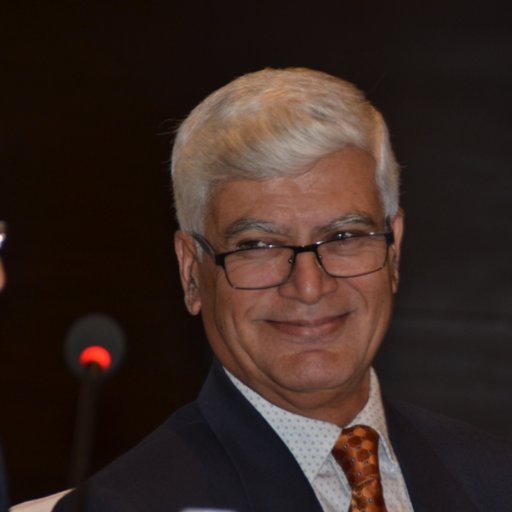Columns
Drastic times call for drastic measures
The army should get a list of the required equipment and activate all channels to obtain them quickly..jpg&w=900&height=601)
Shambhu Ram Simkhada
After losing valuable time initially, the government has started taking preventive steps and making preparations in case the Covid-19 pandemic intensifies. But feedback from the frontline clearly reflects the urgent need for more. That is why, after failing to import vital equipment and medicines through other channels, the government decided to entrust the task to the Nepal Army. Why has this decision generated so much debate and criticism?
Well-wishers are worried that by getting involved in such activities, the army will lose focus in its core national security responsibilities. Some suspect the government is using the army to cover up its previously 'failed and irregular' deal. This could tarnish the army's image which is already battling charges of past corruption. Some even fear that a large number of army personnel could get infected and not only exacerbate the Covid-19 problem but affect the army's capability to carry out its core functions.
Speed and unity
Aware of these concerns, the army, in a normal situation, could and should decline such assignments. But this is a crisis. To prevent the pandemic from getting out of hand, the country must act with speed and unity. We need not just the 'whole of government' but 'whole of nation' approach.
Some intellectuals and politicians argue that by involving the army in such activities, the government is politicising and making it more ambitious. But these critics don’t see the current institutional decline, decay and destruction in the country due to excessive politicisation of all sections of society. The result is what we are witnessing now. Ideally, the army should not be involved in trading, and the civil service must be strengthened. But institutions are not created or strengthened overnight. It takes political will and time. But both seem to be in short supply as of now.
Some people are also stuck with the army's past identity with the monarchy. Others see the army as a conservative force resistant to change and opposed to liberal democracy, or even as an agent of a counter-revolution. But perhaps they don't see that the entire intellectual edifice, on which the monument of secure, prosperous and liberal democracies are built and sustained, is shaking. In this situation, what will people in newly democratising societies think of democrats targeting the army even at times of national emergency? Rather than worrying about the army becoming ambitious, real democrats would do well to devote their energies to redressing the inherent weaknesses within liberal democracies.
Criticism of the government's decision also seems to be coming from sections within the ruling party unhappy with the group in power, with the army being caught in between. Should the party's role be to establish ideological policy platforms for elections as in the Western democracies, or to guide day-to-day state affairs? This is an interesting debate in Nepal's socialism-oriented democracy.
In a reflection of the current global dependence on China, reports show how key North Atlantic Treaty Organisation members, supposed to be coming to each other's rescue, are instead accusing each other of 'piracy' for snatching their vital cargo from the country they are supposed to collectively deter or fight. China supplies 80 percent of the raw materials needed by the pharmaceutical industries in India and the United States.
Some people probably fear that the army, which is traditionally close to India and the United States, will also get closer to China if it gets the responsibility to import medical equipment and materials for fighting Covid-19, most obviously from China.
Without worrying about the media debate, the army should quickly get a list of the required equipment and medicines and their technical specifications from the government, and activate all channels to obtain them quickly and under the best possible terms from different sources. This gives an excellent opportunity for the army to demonstrate its skill in defence diplomacy, and protect the interests of Nepal and the Nepali people by utilising the goodwill of all our foreign friends.
It is no big surprise that criticism is coming from diverse groups hoping to fish in muddy waters if the government fails to handle the pandemic. But, realistically, what happens to Nepal's politics in the near future will largely depend on politics within the ruling party and in some ways, the Nepali Congress, which is down but not out.
Likely scenarios
The world's 10 best known thinkers have given some likely scenarios of the post Covid-19 world. The world will turn inwards, geographically and institutionally, making the nation-state—already the most important and powerful institution the human mind has invented so far—even more important and powerful. Globalisation and multilateralism will be weakened. In this new global paradigm flux, weak states will face more difficulties, raising the number of failed states.
In such a world, it's dicey whether the state machinery—which is unable to import vital medical equipment and materials efficiently in an emergency, and used to spending a large percentage of the annual budget in the last two months of the fiscal year—can protect Nepal's national interests. Things must change. But change can come only if the main political forces come (or are brought) together to the realisation of enlightened national interest that the sick state needs a new vaccine against its own dysfunctional machinery. Only then will there be no need to give the army duties reserved for other agencies of the state.
***
What do you think?
Dear reader, we’d like to hear from you. We regularly publish letters to the editor on contemporary issues or direct responses to something the Post has recently published. Please send your letters to [email protected] with "Letter to the Editor" in the subject line. Please include your name, location, and a contact address so one of our editors can reach out to you.




 14.24°C Kathmandu
14.24°C Kathmandu















